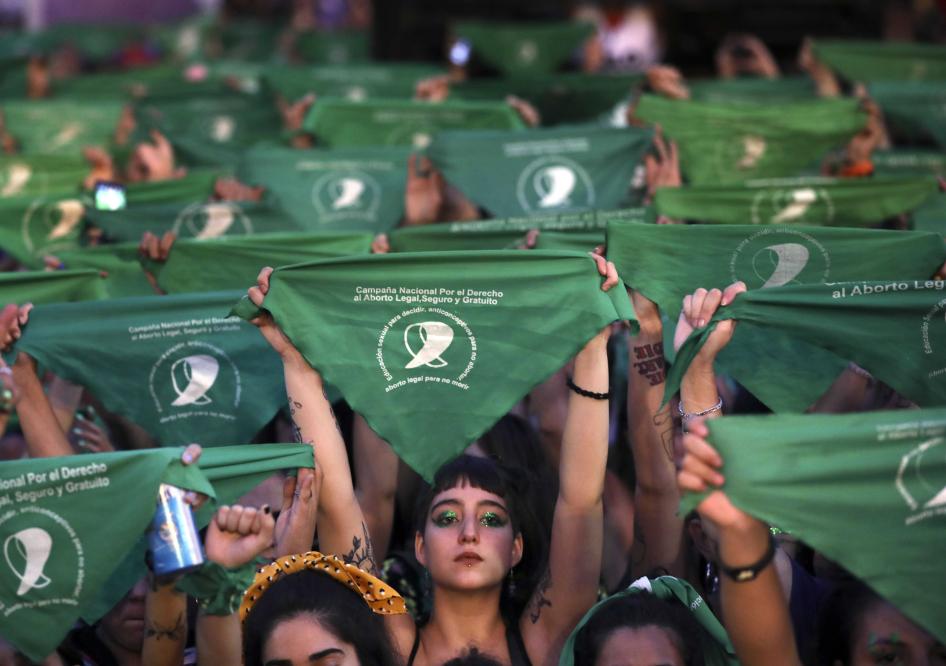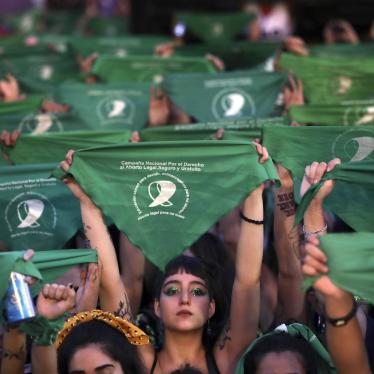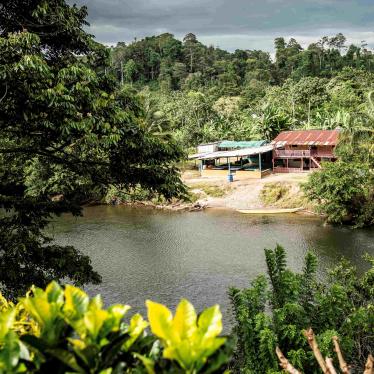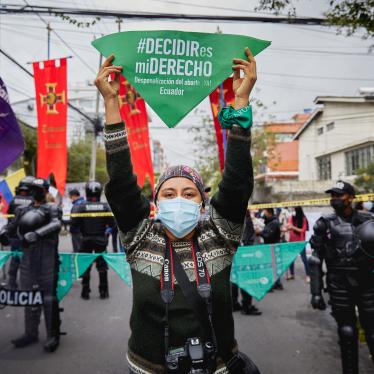Public discussions about abortion are always difficult. They are inevitably affected by stigma, religious beliefs, and profound ethical convictions.
The current debate in Argentina about legalizing abortion is no exception. But a serious and objective analysis of the legal norms at stake and available evidence shows that criminalization of abortion undermines fundamental human rights. Argentine senators should pass the bill sent by President Alberto Fernández to legalize abortion during the first 14 weeks of pregnancy in all circumstances, and later, if the pregnancy resulted from rape or threatened the person’s life or health, exceptions currently allowed by the Criminal Code.
International human rights bodies have repeatedly asked Argentina to reform its abortion laws. These expert bodies are tasked with interpreting international human rights law – it is their authoritative interpretation that should guide our analysis, and not individual personal views.
There are, undoubtedly, different ethical and biological views about when human life begins. However, in legal terms, legalizing abortion is compatible with the right to life. International bodies, such as the Inter-American Court of Human Rights, have repeatedly noted that under international human rights law there is no absolute right to life before birth.
Opponents of the bill to legalize abortion often invoke the UN Convention on the Rights of the Child, claiming that the bill would run counter to children’s right to life. Yet, the Committee on the Rights of the Child, charged with interpreting the UN Convention on the Rights of the Child, has called on countries, including Argentina, to “decriminalize abortion” to ensure the right to health of adolescent girls. Similarly, the president of the committee publicly supported the bill to legalize abortion in Argentina during his presentation in the hearings in Congress.
To be clear, there is no international legal instrument explicitly referencing the right to have an abortion. However, the bodies and experts in charge of interpreting the scope of Argentina’s legal obligations under the treaties the country has ratified have repeatedly found that decriminalizing and ensuring access to abortion is necessary to protect fundamental human rights, including women’s rights to life and health.
At the same time, criminalizing abortion appears to do little to protect life before birth. Indeed, data from multiple studies, including by the World Health Organization (WHO), strongly suggests that people experiencing unwanted pregnancies seek access to abortion services even in highly punitive legal situations.
And while criminalizing abortion has done little to protect life before birth, it has too often undermined the rights of women and girls, including by putting their lives at risk. Abortion restrictions push women and girls seeking abortions, especially those in poverty and who live in rural areas, out of the national health system and into clandestine, unregulated settings. Many clandestine abortions are performed unsafely, leading to short- or long-term health problems, or even death.
According to the WHO, the rate of unsafe abortions is four times higher in countries with restrictive abortion laws than in countries where abortion is legal. In Argentina, abortions are “generally” performed under unsafe conditions, according to a 2015 Ministry of Health report. In 2018, Adolfo Rubinstein, health minister during the administration of former President Mauricio Macri, estimated that 70 percent of abortions in the country were carried out in unsafe conditions. According to the WHO, unsafe abortion is one of the leading causes of maternal mortality in Argentina.
Additionally, the current model in Argentina—which forbids abortions except in specific circumstances—in practice does not work and often means that women and girls have not been able to access abortions even when those exceptions apply. A recent Human Rights Watch report, based on research in five provinces and the City of Buenos Aires, showed that doctors and local health authorities often impose arbitrary and unlawful barriers to women seeking abortions under the exceptions allowed by law. These include when their life or health is at risk or because they have been victims of rape. Forcing women to continue their pregnancies under such circumstances imposes an undue burden and could amount to degrading treatment.
Given the evidence and authoritative interpretations of human rights law in favor of ensuring access to abortion, it is not surprising that many developed countries—including the United States and members of the European Union—have laws allowing women and girls to end their pregnancies on request.
Argentina should join them. The Senate has a landmark opportunity to put an end to a rule that has put the rights of women and girls at risk. They should seize it.










